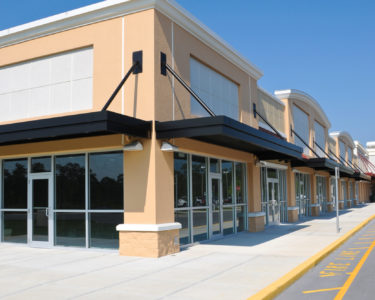Americans Build Value
with Section 1031 Like-Kind Exchanges
Since 1921, Section 1031 like-kind exchanges have stimulated capital investment in the United States by allowing funds to be fully reinvested in the enterprise. A broad-spectrum of American taxpayers use Section 1031 to expand businesses, invest for the future, and repurpose real estate for its highest and best use.
Tell your Member of Congress
 Healthy Agricultural Economy
Healthy Agricultural Economy Driver of Economic Activity & Job Creation
Driver of Economic Activity & Job Creation Promotes Economic Redevelopment
Promotes Economic Redevelopment Incentive for Habitat Conservation
Incentive for Habitat Conservation Helping Businesses Expand & Create Jobs
Helping Businesses Expand & Create Jobs Repurpose Property for Its Best Use
Repurpose Property for Its Best Use Preserve & Attract Land for Conservation
Preserve & Attract Land for Conservation Large & Small Taxpayers, Nationwide
Large & Small Taxpayers, Nationwide Stimulates Capital Investment & Growth
Stimulates Capital Investment & Growth Farmland & Ranchlands
Farmland & Ranchlands Rental and Investment Properties
Rental and Investment Properties Consolidate & Diversify Assets
Consolidate & Diversify Assets
FEA Perspectives
Perspective: Benefits of Like-Kind Exchanges in a Distressed Real Estate Market (NEW)
Perspective: Section 1031 Talking Points
Infographic: EY Study: Economic Contribution of Like-Kind Exchange Rules in 2021
Infographic: Section 1031: Sustaining American Businesses During Economic Uncertainty
Perspective: Like-Kind Exchanges Promoting Economic Growth
Letter: 1031 Coalition Letter About Importance of Like-Kind Exchanges
Whitepaper: FEA Impact of IRC 1031 on the Economy
Whitepaper: FEA Legislative History of 1031
Preserving Section 1031
President Biden’s proposed $500,000 cap on Section 1031 like-kind exchanges would effectively eliminate commercial real estate exchanges, as well as larger farm and ranch exchanges.
Due to the COVID-19 pandemic, a significant percentage of hotel, retail and office property throughout the country may need to be repurposed. Larger investors are critical to revitalizing and renovating commercial real estate in a post-pandemic economy.
Recent economic impact studies concluded that like-kind exchanges are a powerful stimulant of transactional activity that will create 976,000 jobs, including $48.6 billion of labor income and a total of $97.4 billion of value added to the U.S. economy.
